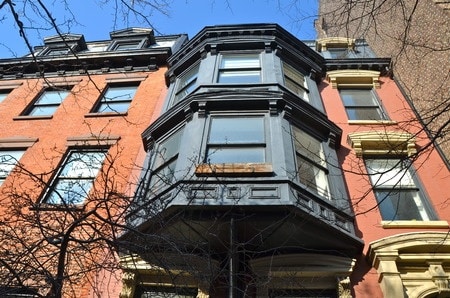Is Coronavirus The End Of The Road For New York’s Regulated Apartment Owners?

Last year’s “rent reforms” started by almost entirely preventing owners from raising rents, even if tenants moved out or an owner invested in a new boiler, a new roof, new bathrooms and kitchens, renovations, or other improvements. The legislature removed a “loophole” that enabled property owners to liberate some apartments occupied by high earning tenants.
In 40,000-plus words, the legislature rewrote the law of rent-regulated housing in a way that favored tenants, both substantively – keeping rents far below market even when apartments turned over – and by making it much more difficult for owners to defend against claims that they charged more rent than the legal maximum. Breaking with decades of tradition, the legislature made the law permanent rather than subject to a sunset, and hence reconsideration, after a few years.
On top of all that “reform,” layer on the consequences of today’s pandemic. New York initially closed its courts to all eviction proceedings through June, thus inviting all tenants not to pay rent, regardless of ability to do so. The state has already extended that closure through August 20, though that extension is supposed to benefit only tenants who have suffered because of the pandemic. Some tenant advocates say it should continue for a year.
Tenant groups staged a “rent strike,” refusing to pay rent to some larger property owners that the organizers decided could afford the lost income – A&E Real Estate, Related, Zara Realty, Kushner Companies and others. After a while, the mayor decided he would meekly discourage a rent strike. The city did nothing to encourage tenants, especially those who could afford to do so, to pay their rent.
Now take a look back over the five years ending in March 2020. In that time, the administrative board that determines rent increases for rent-regulated apartments found that owners’ operating expenses had gone up by an average of about 4% a year. In that same time, the board generally allowed rent increases averaging 1% per year. The board is now deciding how much of an increase to allow in 2020, after finding a 3.7% increase in operating costs through March 2020. The mayor, who appointed all the board members, announced that he favored a rent freeze – no increase at all – because tenants need it. The board seems ready to comply.
It costs money to own, operate, and properly maintain apartment buildings. About 30% of gross rental revenue typically goes straight to the city government in real estate taxes – twice the national average percentage. Another 5% to 10% goes to ever-growing water and sewer charges. About 10% goes to maintenance, 10% to payroll, 5% to fuel, 10% to general administrative costs and 5% to insurance. These are rough numbers, based in part on the expense analyses mentioned above. These expenses leave around 20% or 25% for the owner. Most of that will typically go to pay the owner’s mortgage.
In short, rent regulated owners were hardly making a killing, even before the city and state invited tenants rich and poor to stop paying their rent because of the pandemic. Signature Bank, a leading multifamily lender in New York City, said it had determined that 50% of rent-regulated tenants had stopped paying their rent. Dime Community Bank, a smaller lender in that market, issued a similar report.
Owners will need to pay their next installment of property taxes on July 1. If tenants don’t pay their rent, many owners won’t be able to pay their real estate taxes. Unpaid real estate taxes will bear interest at 18% per annum. Unpaid staff, unless already laid off, will walk off the job. The state can fine the employer twice the unpaid wages. The building employees’ union will also have something to say. Unpaid lenders will charge default interest and eventually foreclose.
It does not require an advanced degree to realize that New York’s “rent reform” and responses to the coronavirus pandemic will likely combine to destroy rent-regulated housing in New York. Another year of rent increases that don’t keep up with operating costs won’t help. In a few years, if nothing changes, much of New York’s inventory of rent regulated apartment buildings will face foreclosure. In the worst case, the government may acquire many buildings through tax sales.
Some of the more progressive lawmakers in New York don’t think apartment buildings should be privately owned at all. They may get their way.
Source: forbes.com















 Accessibility
Accessibility